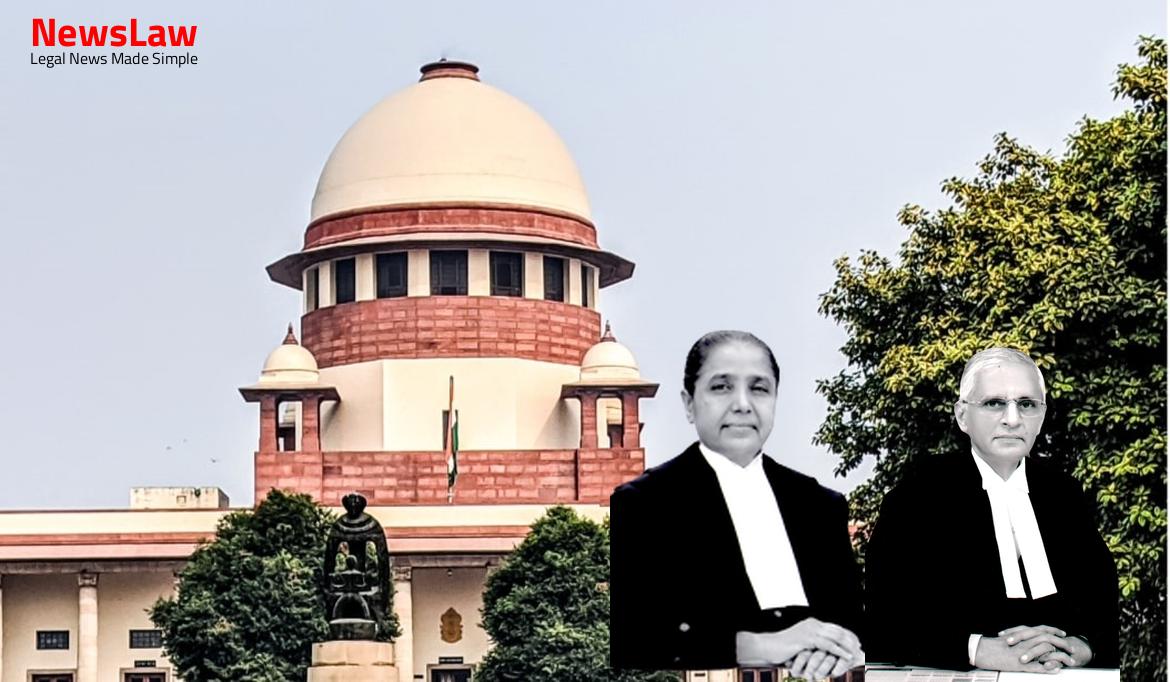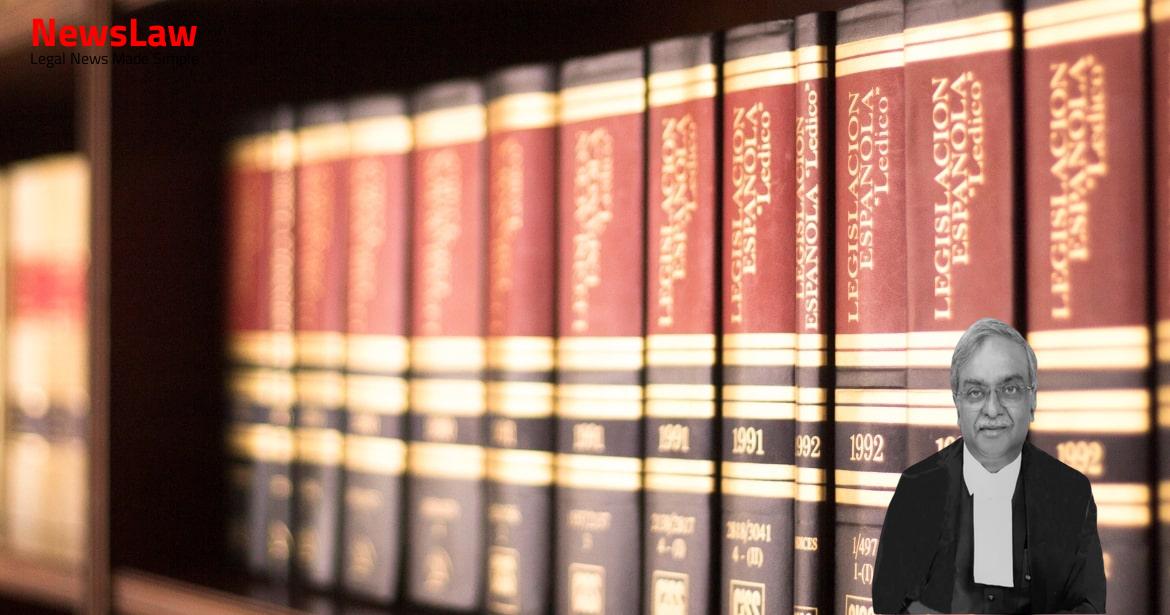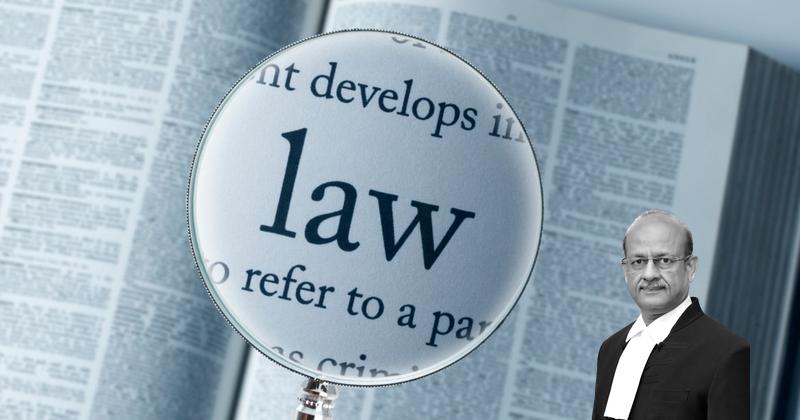In a significant legal development, the Supreme Court has acquitted the accused in the Food Adulteration case, overturning the previous conviction by the High Court of Allahabad. The case revolved around allegations of selling buffalo milk without a license, leading to a criminal prosecution initiated by the complainant R.C. Kansal. The judgment highlights the critical aspect of procedural adherence in upholding justice and fairness in legal proceedings.
Facts
- The prosecution examined three witnesses – complainant R.C. Kansal, Jaipal Singh, and Radhey Shyam.
- Jaipal Singh sent the report of the Public Analyst to the Appellant on 07.04.1980.
- Radhey Shyam, declared hostile by the prosecution, was an independent witness.
- The bottles containing milk samples were sealed and labels were pasted on them.
- The purchased milk was divided equally and filled in 3 clean bottles for testing.
- The independent witness Radhey Shyam did not support the prosecution’s case.
- The sample of milk was found to be adulterated based on the report prepared by the Public Analyst.
- Sri R.C. Kansal, the Food Inspector, filed a complaint after finding the appellant selling buffalo milk without a license.
- The appellant did not produce any evidence in defense.
- The Supreme Court’s ruling in the case of Ram Lubhaya vs Municipal Corporation stated that guilt can be proved based on the evidence of the Food Inspector.
- The Public Analyst’s report was sent to the appellant by registered post on 07.04.1980.
- Criminal case No. 787 of 1986 was registered based on the complaint prepared by the complainant.
- Thumb impressions of the Appellant were taken on the labels posted on the bottles.
- Consent for prosecution was granted under Section 7(1)(16)(1)(a)(i) of the Prevention of Food Adulteration Act by the Chief Medical Officer.
- The complainant purchased milk in the presence of an independent witness and took thumb impression of the witness.
- The High Court rejected objections raised by the Appellant regarding Section 10(7) and upheld the conviction.
- The Appellant was sentenced to 6 months rigorous imprisonment and a fine of Rs. 1000/- with default sentence.
- Appeal filed by the Appellant was dismissed, affirming the conviction by the trial court.
- The Appellant filed a Criminal Revision contending non-compliance of Section 10(7) and Section 13(2) of the Food Adulteration Act.
- The High Court dismissed the revision, affirming the conviction under Sec. 7(1)/16(1)(a)(i) of the Prevention of Food Adulteration Act, 1954.
Also Read: Solapur Municipal Corporation vs. Majarewadi Gram Panchayat Employees
Analysis
- The appellant/accused should not suffer penal consequences without strict construction of the circumstances.
- The notice should have been sent within 10 days of receipt of the analyst’s report, but in this case, it was sent after 20 days.
- Despite the dispatch of the report on 07.04.1980, which was beyond the 10-day limit, the right of the accused to seek reference within 10 days stands defeated without proof of delivery.
- The prosecution’s case relies heavily on the analyst’s report, but lack of support from an independent witness weakens the case.
- Non-compliance of mandatory provisions of Rules 17 and 18 of Prevention of Food Adulteration Rules renders the conviction unwarranted.
- The accused’s right to request a sample retest at the Central Food Laboratory under Section 13(2) was not exercised, leading to substantial compliance with the law according to the court.
- There was no proof of notice delivery to the appellant, and the uncorroborated testimony of the Food Inspector is insufficient for conviction.
- The report from the analyst was not served to the appellant, and the adequacy of the sample collection and analysis method is questioned due to lack of evidence.
- Efforts to get corroboration from witnesses witnessing the sample collection were not fulfilled, further weakening the case.
- The purpose of furnishing the report is to enable the accused to request a sample retest if dissatisfied, a right not utilized by the appellant.
- The milk sample’s deficiency, as reported by the analyst, would only hold if the sample was properly collected and analyzed.
- The gap of 19 days between report dispatch and actual receipt by the appellant raises questions of procedural compliance.
- Cancellation of bail bonds and arrest of the appellant was directed due to failure to request a sample retest.
- Decision in K. Harikumar vs Food Inspector, Punaloor Municipality (1995) Supple 3 SCC 405 emphasized the importance of attaining homogeneity in curd.
- It was noted that stirring and churning may be necessary for consistency when determining the percentage of milk solid non-fat and milk solid fat.
- The obligation of the Food Inspector under Section 10 (7) was reiterated in the case of Shri Ram Lubhaya, where it was clarified that the Inspector can ‘call’ individuals to be present during actions, but cannot force anyone to cooperate if they are unwilling.
- The Local Authority is required to forward a copy of Analyst’s Report within 10 days after the institution of prosecution.
- The copy of the report can be sent by registered post or by hand.
- In order for the prosecution to prove guilt beyond reasonable doubt, certain aspects need to be established.
- Key aspects include proving the serving of the Analyst’s report and ensuring the sample was taken in an appropriate manner.
- Failure to establish these crucial aspects undermines the prosecution’s case.
- Without these elements being proven, the conviction of the appellant is not justified.
Decision
- Judgments dated 02.06.1987, 01.11.1988, and 09.12.2014 passed respectively by the Judicial Magistrate, Hapur, Ghaziabad, the Additional Sessions Judge Ghaziabad, and the High Court of Allahabad are set aside.
- The appeal is allowed, and the appellant is acquitted of the charge under Section 7(1)/16(1)(a)(i) of the Prevention of Food Adulteration Act.
- The learned counsel for the appellant appointed through the Supreme Court Legal Services Committee provided able assistance.
Also Read: Jagdishchandra v. Joint Charity Commissioner & Ors.
Case Title: VIJENDRA Vs. THE STATE OF UTTAR PRADESH
Case Number: Crl.A. No.-001167-001167 / 2019



